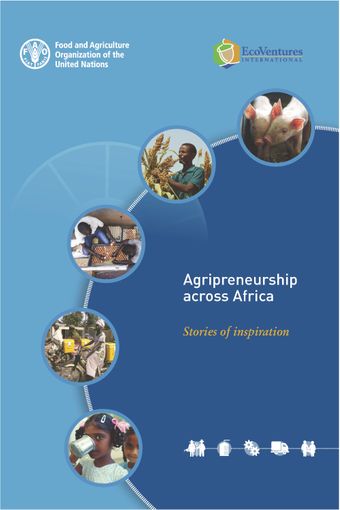- Home
- Books
- Agripreneurship across Africa
- Chapter
Introduction

- Author: Food and Agriculture Organization of the United Nations
- Main Title: Agripreneurship across Africa , pp 1-8
- Publication Date: September 2019
- DOI: https://doi.org/10.18356/0cfceb4d-en
- Language: English
- Previous Chapter
- Table of Contents
- Next Chapter
It is broadly recognized that entrepreneurship plays an instrumental role in national development, bringing economic growth and innovations that improve the lives of many. Agribusiness entrepreneurs, or agripreneurs, play a particularly important role in developing countries, in a sector where most of the population operates. In creating, growing and sustaining agribusinesses and agro-industry, agripreneurs are the key drivers of sustainable food value chain development (FAO, 2014). When agribusiness entrepreneurs succeed in creating and growing firms that are profitable and competitive, they do not only generate profits for themselves. More importantly, they generate jobs and tax revenues, while creating critical products, services or markets for other agribusinesses (including small family farms); they improve the food supply for consumers (lower price, higher quality, new or formerly unavailable products); and generally, they have a broad-based positive impact on the wider environment in which they operate (economic, social and environmental). By providing relatable lessons learned from the struggles and triumphs of successful agripreneurs, it is possible to derive recommendations for both aspiring agripreneurs to follow, and for policy-makers on what constitutes an enabling environment in which entrepreneurs can thrive.
-
From This Site
/content/books/9789210045292c005dcterms_title,dcterms_subject,pub_keyword-contentType:Journal -contentType:Contributor -contentType:Concept -contentType:Institution105


